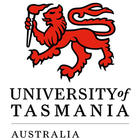Graduate Certificate in Education
- Posted by University of Tasmania (UTAS)
- Home
- Courses
- University of Tasmania (UTAS)
- Graduate Certificate in Education
Graduate Certificate in Education
The Graduate Certificate in Education is based on principles of active learning and practice-oriented enquiry, informed by professional standards, contemporary theoretical perspectives, and research in teaching and learning. The course is founded on a key value of personal and collective professional responsibility for the improvement of educational outcomes and environments…
Categories
COURSE DESCRIPTION
The Graduate Certificate in Education is based on principles of active learning and practice-oriented enquiry, informed by professional standards, contemporary theoretical perspectives, and research in teaching and learning. The course is founded on a key value of personal and collective professional responsibility for the improvement of educational outcomes and environments for learning across diverse settings.
The course aims to be relevant and responsive to the needs of people in a range of education-related roles. You will work in collegial ways and communicate effectively across professional settings to initiate and support change in and beyond your immediate spheres of influence.
By the end of the Graduate Certificate of Education, you will have new professional knowledge and an understanding of key research principles and methods. You will be able to critically reflect on and investigate practice and apply new ideas in diverse educational contexts. You will build the foundational knowledge and skills of rich reflective practice and models for enquiry that can be applied to your work context or specialised area of study to effect change.
We recognise that relationships are fundamental to effective teaching and that the past experiences of students contribute to their capacity for learning. The PG Coursework Program is therefore taught in flexible mode using adult education principles to enable learning in online and face-to-face environments.
Learning Outcomes
1 Explain how the theoretical foundations and practice of education (including various specialisations) have informed and can facilitate developments in educational practice.
2 Synthesise and analyse scholarly literature to evaluate local and international developments in practice.
3 Integrate educational theory and professional knowledge to plan, implement and evaluate a professional enquiry initiative or conduct a theoretical investigation.
REQUIREMENTS
University of Tasmania require qualifications equivalent to an Australian bachelor degree.
IELTS (Academic) – 6.0 (no individual band less than 6.0)
TOEFL (iBT) 72 (no skill below: Reading 16; Listening 16; Speaking 18; Writing 22)
PTE Academic 50 with no score lower than 50
UTAS Access-English Level 7 – 60% (no individual score less than 60%)
Cambridge CAE (Certificate of Advanced English) – B Grade
Cambridge CPE (Certificate of Proficiency in English) – C Grade
Cambridge BEC (Business English Certificate) Higher – C Grade
EDUCATIONAL INSTITUTION
The University of Tasmania was officially founded on 1st January 1890 and is located at Sandy Bay, Tasmania. In addition to the main campus at Sandy Bay, it also operates out of the Newnham Campus and the Cradle Coast Campus. The most popular courses offered are the environmental studies that include wilderness management, marine sciences and indigenous studies in Tasmanian literature. Other unconventional courses include agriculture development, studies on the community and population and ocean study programs. The university also comprises of a Music Conservatorium, Art school and a School of Clinical studies.
The University of Tasmania was officially founded on 1st January 1890 and is located at Sandy Bay, Tasmania. In addition to the main campus at Sandy Bay, it also operates out of the Newnham Campus and the Cradle Coast Campus. The most popular courses offered are the environmental studies that include wilderness management, marine sciences and indigenous studies in Tasmanian literature. Other unconventional courses include agriculture development, studies on the community and population and ocean study programs. The university also comprises of a Music Conservatorium, Art school and a School of Clinical studies.




